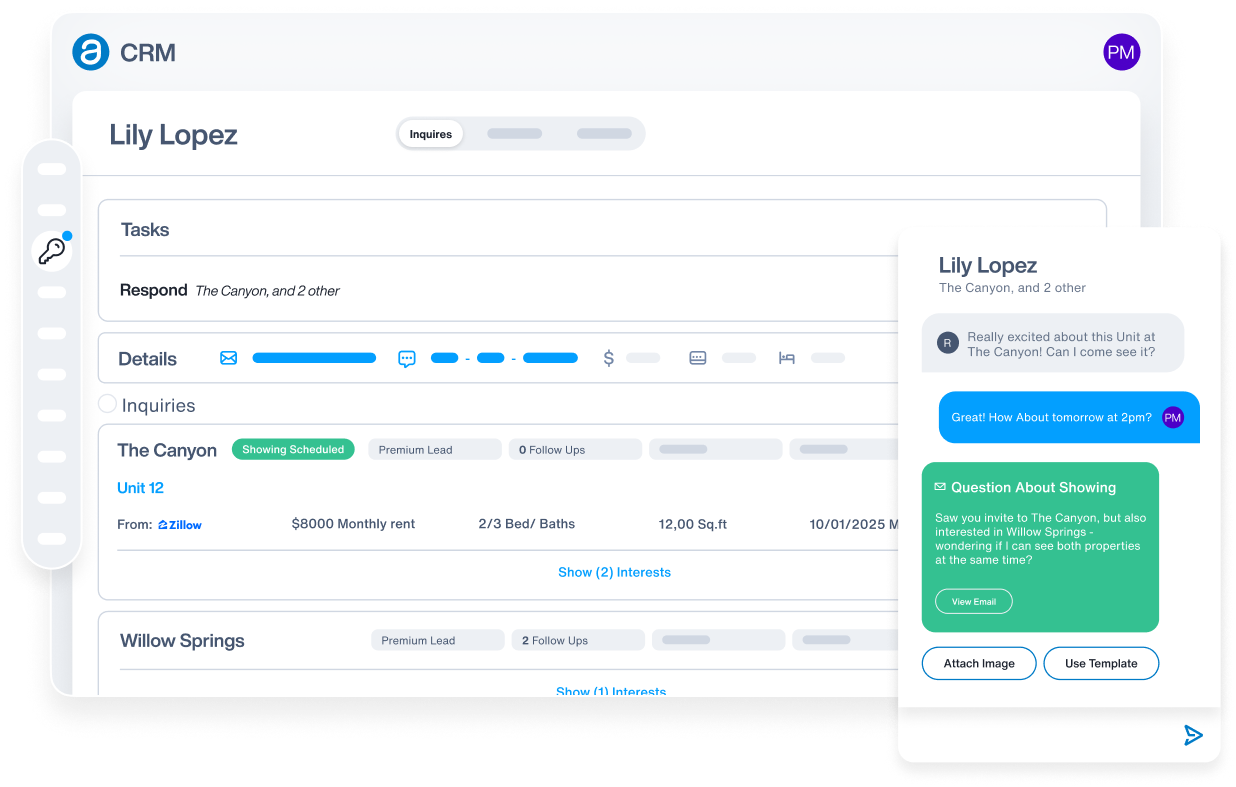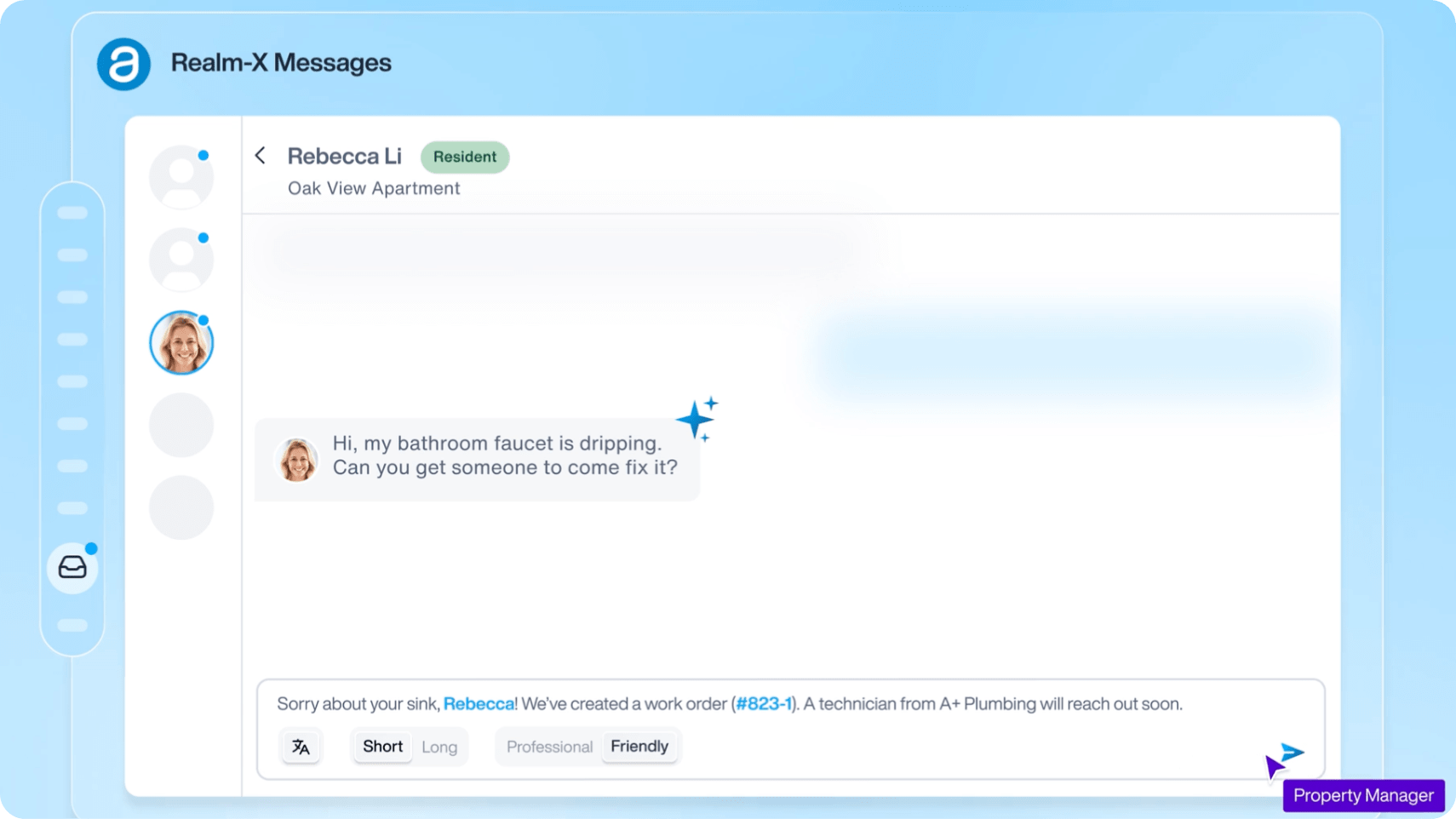Published on June 28th, 2022
By Marc Frenkiel
There are two types of leasing agents: those who use the flexibility of the role as a way to support themselves while they work toward their true aspirations and those who are in it for the long run.
Regarding the latter, data from our recent hiring and retention report shows this cohort of leasing agents is not satisfied with many aspects of the job.
But with every challenge comes opportunity, and in this case, since property management companies need future leaders, this is an opportunity to raise them in their ranks.
Here’s what leasing agents told us they want and what you can do to satisfy them, avoid employee turnover, and prepare your company for the future.
Provide a path for career growth
While our research revealed that opportunities for career growth are a top driver of employee satisfaction, leasing agents reported this to be more important to them than any other property management employee (93% in the leasing cohort vs. 88% for all respondents). A possible explanation for this is that leasing is typically an entry-level position, and generally, those at the entry level are more concerned with growing their careers.
Additionally, our research found that leasing agents were the least likely to agree that their leaders “care about” them.
So what can you do about this? Show them you care by showing them how to move up.
As part of our research, we interviewed two leaders in their own right: Barry Blanton, 2022 IREM President and Founding Principal of Seattle-based property management firm Blanton Turner and Steve Cadigan, renowned talent strategist and work culture consultant. They offered complementary points of view on being proactive about showing your employees different career trajectories. Here’s what Barry said:
“We don’t do a terrific job of explaining what other options there are. There are multiple disciplines within our industry and profession. And sometimes, people either aren’t made aware of what some of those things might be and where their passions might be better suited, but they’re out there. They range from accountants to human resource management professionals to marketing professionals, maintenance and facilities management, technology, and finance.”
And according to Steve:
“If you want people to stay longer, show them the pathways of opportunity. What are the stepping stones?”
So what are the stepping stones?
Start with looking inwards at your own business
Find examples of those in your organization who have graduated from leasing agent to a higher-level role. Maybe you have a director of leasing who began as a leasing agent. Maybe one of your regional property managers began in leasing. Then, connect them as a mentor to those in the role now. As Barry Blanton advises: “Get the folks that have that knowledge and experience into a mentoring role. Really celebrate what they have that they can share.”
If no one in your company comes to mind, here are several examples of people who forged successful careers for themselves by starting out as leasing agents:
Roger Daniel
An entrepreneur at heart, Roger dropped out of medical school to explore a career in real estate. He began as a leasing agent making $13 per hour.
With his foot in the door, he was able to work his way into a role as a property manager, and once he gained a solid foundation in property management, he learned the financial side of the business, eventually leaving the industry altogether for a brief stint at a financial services firm underwriting deals.
He made his way back to the owner/operator side as an asset manager and eventually went out on his own to start his own property management firm. His company, Daniel Management Group, manages nearly 2,000 units, in which he has a part-ownership stake via his capital management company, DMG Capital.
Roger’s story is inspiring and can serve as an example of how anyone with curiosity, ambition, and work ethic can follow. It also offers real-world proof that the path to success is never a straight line. You can read Roger’s story here.
Lisa Trosien
Real estate was never the long-term plan for Lisa Trosien when she took a part-time job as a leasing agent to finance her undergraduate studies in education. According to her website, “upon discovering how much she enjoyed leasing and the apartment industry as a whole, Lisa decided that she would use her teaching degree and apply what she has learned in school to the industry she has grown to love.” Lisa now owns her own business, ApartmentExpert.com, where she advises real estate owners, property management companies, and industry supplier partners on product positioning, sales strategies, and sales and communication etiquette in the residential property management industry.
Stephanie Anderson
As the Senior Director of Content Strategy at Grace Hill, Stephanie Anderson crafts thought leadership content focusing on property management best practices and trends. Beginning her career in 2006 as a leasing agent, she took it upon herself to expand her scope of duties with assistant property manager responsibilities. She then transitioned into full-time property management with a senior-level role before serving as Director of Organizational Development for The Franklin Johnston Group and then Regional Property Manager for Drucker + Falk, LLC. Before joining Grace Hill, Stephanie was an industry operations manager for the National Apartment Association (NAA), where she delivered content and programs to support operational best practices in rental housing. She also oversaw the national committees for Operations and Independent Rental Owners.
So what do these three stories have in common?
Roger, Lisa, and Stephanie all leveraged their entry-level experiences in leasing to forge careers based on their passions and ambitions.
As a property management leader, you are in a position to help your leasing staff see that their current role is just one (very important) facet of property management, which itself is just one facet of real estate. The skills acquired on the job are applicable in many different fields and can lead to much greater opportunity. Find out if your leasing staff have other ambitions.
For those who want to explore the finance/acquisitions side of real estate, encourage them to read Roger Daniel’s story before introducing them to someone with a similar background at your own firm (maybe that person is you).
For those who may want to double down and grow in the leasing realm, Lisa Trosien’s story can show them the opportunities that emerge by becoming an expert in the field. And for those who express a desire to gain more experience or pursue a career in marketing, show them that there is an overlap between real estate/property management and marketing, and it goes far beyond marketing vacancies. There is no shortage of opportunity in the field, and Stephanie Anderson’s career is a prime example.
Offer smarter incentives
While “increasing compensation” was the top change that all the property management employees we surveyed cited as having the potential to increase job satisfaction, leasing agents rated this in a higher proportion than any other cohort. Our research also found that leasing agents are by far the least satisfied with salary: Just 38% reported being satisfied with their salary, compared to 57% of maintenance techs and 64% of property managers. Only 48% of the leasing agents surveyed are satisfied with the connection between their pay and performance.
The problem, as you know, is that margins are already razor-thin in the fee management business. Combined with the difficult economic conditions of today, increasing base salaries may not be an option. There is a solution, however:
Increase commission paid or switch to all-commission compensation
While certain states require sales and leasing agents to be fully licensed to work on commission, setting your business up this way can offer your leasing agents significantly more incentive and financial upside to close deals and close the gap between pay and performance.
On a recent episode of the Owner Occupied podcast, Host Peter Lohmann, Co-founder and CEO at Columbus, Ohio-based RL Property Management, asked Moses Kagan, Co-founder and Partner at L.A.-based Adaptive Realty, about the benefits of such a model. According to Moses:
“We are 100% commission based, and commission is typically 23% of the first month’s rent on a 12-month lease with a minimum of $450. It’s all really about showings. Sometimes the person calling wants to see the place on Tuesday night at 7:00, and they’re the only person who wants to see it then. Now the question is, is the leasing agent going to want to get off his or her couch and show the unit? [If they close], they’ll probably earn around $200 for the hour it takes to go and show it.”
Contrast this with a leasing agent making a flat rate of $20 per hour, which is on the higher end of the pay scale. According to Salary.com, the average hourly wage for a leasing consultant in the United States is $15 as of May 27, 2022, but the range typically falls between $14 and $17. At these rates with no commission, the incentive to go above and beyond is understandably low.
Closing thoughts
As a property management leader yourself, you may be struggling with employee retention, especially among your leasing agents. The data shows that leasing agents are among the unhappiest property management employees when it comes to salary and the connection between pay and performance. Consider offering your leasing agents greater upside and incentive by upping their commission on closed deals. In terms of career growth, the data shows that leasing agents care more about this than any other cohort but may not be receiving the guidance that they want. It’s up to you to help them see that leasing can be the starting point to a rewarding, exciting career. For a deep dive on what property management employees — leasing agents included — really want, check out the Top Floor episode featuring Barry Blanton and Steve Cadigan.









Comments by Marc Frenkiel